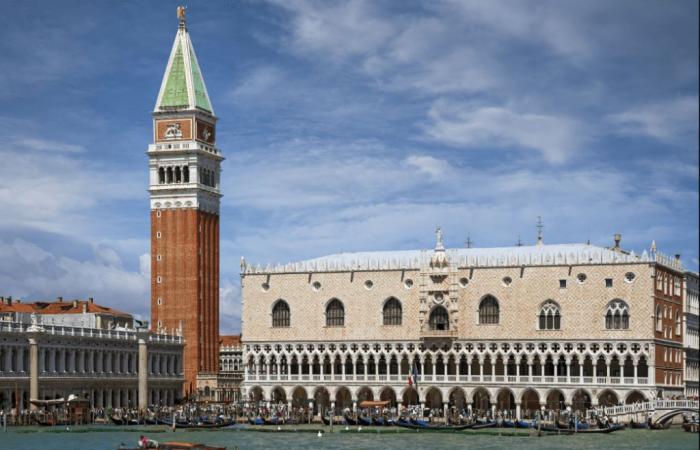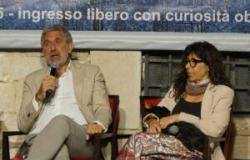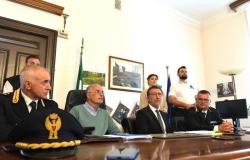Umberto Baldo
Perhaps sinning a bit of chauvinism, I decided to close this “election week” by returning to take a look at what happened in our Veneto.
I will avoid boring you with the usual string of numbers, because I already spoke to you about the triumphal march of the Brothers of Italy (37%) in the European elections, triple that of the League, and the consequent downsizing of the Northern League, last Monday.
A success which, in truth, was not repeated on that scale in the administrative elections which were held simultaneously in 309 municipalities, of which 24 had over 15 thousand inhabitants.
In the Municipalities the result was very different, and it is nevertheless curious to note that the same voter, at the same time, expressed two different opinions; politically rewarding Giorgia Meloni, but from an administrative point of view voting often and willingly for Mayors of the League.
This apparent contradiction actually derives from the lack of weight in the territory of the Brothers of Italy compared to their Northern League allies.
But ultimately this lack of a ruling class discounted by FdI in Veneto is similar to that which the Premier must face at a national level for certain positions.
This isn’t the first time I’ve pointed this out. On the other hand, the left, and similarly the Northern League, have had decades to form a ruling class, time that has instead been lacking for the right, which has always been in opposition.
It is only a question of time and experience, and if the Italian people allow (which is not a given in Pulcinella’s Republic) Meloni’s men to govern for a certain period of time, they too will learn (after all in Veneto they say that: over time if it does too and so!)
Returning to Veneto, I was impressed by some data from the Province of Vicenza, one of the traditional “granaries” of the League in Veneto.
And so in Zermeghedo Giorgia Meloni is at 41% (Lega at 14%), in Arzignano, in the tanning district, at 42%, in Thiene, where in 2007 a single Northern League party prevailed, now Fdi stands out with 37.68%.
I could continue, because similar results are found almost everywhere in the Region.
But I told you that I would give “a few numbers”, also because if you are passionate about tables and comparisons you can always consult the Ministry of the Interior website “Eligendo”, which I found to be of excellent quality.
Looking at these data from 2024, I could not help but observe that we Venetians have gone from the end of the war to three “great loves”, allow me this simplification; first the Christian Democrats, then the League, and now it would seem the turn of the Brothers of Italy.
In all cases rewarding the first political force “of the moment” with a very high electoral consensus.
Political scientists, always looking (after all, it is their job) to give an explanation to political and consequently electoral phenomena, have often spoken of Veneto as a “political laboratory” (even if in reality for me it is an overused expression , which can work well in many other local areas).
I believe that rather than a “laboratory”, in relation to the Veneto we can speak of a “territorial culture”, which until the 1980s was identified with the “white”, i.e. with the shield-crusader of the DC.
THEIn other words, for decades our Region has been able to count on a dominant party, the Christian Democrats, which has played the role of interpreter and guarantor of local interests.
Its strength was also rooted thanks to the hegemony exercised by the Catholic Church over a large part of Venetian society.
In Veneto no other party could count on a similar basis of consensus, but also of territorial organisation, and on such a widespread and widespread network of associations.
Now only those who have had a few years under their belt remember it, but Veneto was then defined, even in a derogatory way, as the “Sacristy of Italy”.
And look, I remember when in certain countries, and there were many in all the provinces, the DC won the elections with percentages of 50-60, even 70%.
We who were involved in politics in other parties were used to it, but perhaps not even in the so-called “red regions” did the Communist Party reach similar levels of consensus.
With the end of the First Republic and the incredible triumph of the League, it seemed that the Lion of San Marco could roar again.
But it was not so. Veneto, the only European region richer than Bavaria, paid the price of having a disappointing and lacking in depth local political class.
And this did not change with the transition from the “Crossed Shield” to the “Leòn che magna el teròn”; first with Giancarlo Galan, an expression of the Berlusconian galaxy, then with Luca Zaia, an up-and-coming young man, but incapable of freeing himself from the suffocating hegemony of the Lombard League.
But the Venetian entrepreneurs themselves, despite counting on famous people all over the world, were unable to give Veneto an adequate national representation.
And this has been seen clearly in certain passages: to give just one example, that of the banking crises and the consequent “one-euro acquisitions”, which were resolved with the transfer of Venetian savings and finance outside the region.
Why did the Venetians flock to the League en masse after the collapse of the DC?
On the one hand because they have always been linked to the language, history and autonomy of the Region, and this allowed Umberto Bossi who openly spoke of “homelands”, of “Padania”, of secession” to break through in “Terra di San Marco”.
On the other hand because, again Bossi, he spoke of “thieving Rome”, and this was a theme that touched the sensitivity and wallet of that productive middle class whose consensus the Venetian DC had largely gathered, but which was tired of an tighter “Roman” control after decades of great fiscal freedom.
Few will remember it, but one of the clearest minds among the Venetian politicians of the time, Antonio Bisaglia, perceived and understood in advance the “Lega wave” coming.
That is, he clearly understood the cultural and structural reasons for that new emerging political reality: defense of the history of the Serenissima and the popular Venetian language, value of local autonomy, suffering suffered due to unbearable imposition and fiscal control after years of “cheerful taxation”. and, above all, the growing distrust in a Party, the DC precisely, strong in territorial consensus, but weak in central government representation, in which the reasons of the “Veneto people” can be asserted.
And as a countermeasure he launched the idea of an organization on a different and “federal” basis of the DC, with the Venetian DC which could have taken on the characteristics of the Bavarian CSU, the one with which Carlo Bernini had excellent relations in the person of President Franz Josef Strauss.
The premature death of Bisaglia, and then the precipitation of events, prevented any development of this idea.
And we reach the end of our reasoning, which translates into the question: after the DC, after the League, has the time come for the Brothers of Italy to be the reference party for the Venetians?
Beyond the suggestions deriving from the numbers obtained by Giorgia Meloni’s Party in the European elections, I believe it is a little premature to reach this conclusion.
First of all because, as we have seen, FdI needs time to build a ruling class in the territories, while the League, which considers the Veneto as its “Piave line”, will do everything possible to defend its positions, even the barricades.
Then there is the variable Luca Zaia (and of the toughest component of the Liga Veneta) who, even if he will not be able to run for the third term, is someone who in the last regional elections won 77% of the votes of the Venetians, and I don’t know which list and which Presidential candidate is capable of light-heartedly facing a direct clash with a possible “Zaia list”.
Another element remains unaffected, that of regional autonomy.
In the sense that, even if it is true that FdI is loyally passing the law wanted by the League in Parliament, the Party remains culturally “centralist”, and certain tensions sooner or later re-emerge, like the karst rivers.
And finally it must be considered that, with the end of ideologies and the advent of liquid parties, the schemes that were fine until some time ago are now completely obsolete, so it becomes impossible and risky to take any level of consensus achieved for granted. .
In conclusion, as I stated at the beginning, there is no “Veneto model”, and therefore I believe that in the future we will hardly see entities comparable to the mass parties (such as the DC or the PCI), which knew how to anchor themselves strongly to the territories and the various deposits of “social capital”.
Giorgia Meloni should always keep this in mind, because, like “slander” in The Barber of Seville, “consensus is also a breeze”.
Umberto Baldo






